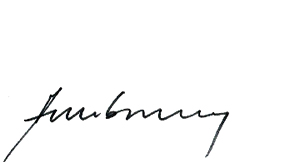Challenging market environment
Despite the challenging conditions, the Migros Group performed solidly in 2017. Total sales increased by CHF 333 million (+1.2%) to CHF 28.1 billion. This shows that Migros is responding to the changes in consumer behaviour in the right ways. With its various online offerings, it was able to further extend its undisputed leading position in the area of e-commerce.
The Migros Group's earnings before interest and taxes (EBIT) were CHF 603 million in the reporting year, 33.8% below the previous year (2016: CHF 911 million).
With a volume of CHF 1'476 million (2016: CHF 1'663 million), investments remained at a high level. Thus, Migros was once again a key economic partner in Switzerland in 2017 and helped to safeguard thousands of jobs.
Retail sales in Switzerland and abroad (before VAT) increased to CHF 23.5 billion in nominal terms (2016: CHF 23.3 billion), corresponding to growth of 1.0%. Average inflation within Migros amounted to -0.3%.
Net sales of the Cooperatives (including other countries) decreased by CHF 77 million to CHF 15.6 billion (-0.5%). Abroad, the regional Cooperatives generated sales of CHF 1.2 billion, representing growth of 2.6%, or CHF 31 million; Tegut was the main contributor with a sales increase of 3.7%, or CHF 40 million, to CHF 1.1 billion. Sales at Migros France were down by 6.4% to CHF 122 million.
Regional and sustainable products remained on a growth course, with CHF 960 million (+2.0%) of products from the range "Aus der Region. Für die Region." (From the region. For the region.) sold. With sales of CHF 3 billion (+3.9%), products with ecological or social added value were also very popular. The Migros organic range and the TerraSuisse sustainability programme accounted for more than half of this volume. At a total of CHF 4 billion, sales of products carrying sustainability and regional labels and the health label "aha!" (CHF 87 million) were up by 3.3% on the previous year.
To pursue the mission incorporated in Migros' statues – i.e. to support a healthy lifestyle among the Swiss population – Migros again stepped up its activities in the area of health. The comprehensive medical and therapeutic range of Medbase saw total sales increase by 6.0% to CHF 139 million. The newly launched digital platform iMpuls provided the public with tips and support for leading a healthy lifestyle.
With the expansion of its fitness formats and the acquisition of Silhouette Wellness SA, Migros further extended its leading position in the fitness market; at the end of 2017, it had 226'600 members (+19.3%). Based on the number of members, the market share in Switzerland is about 25%.


